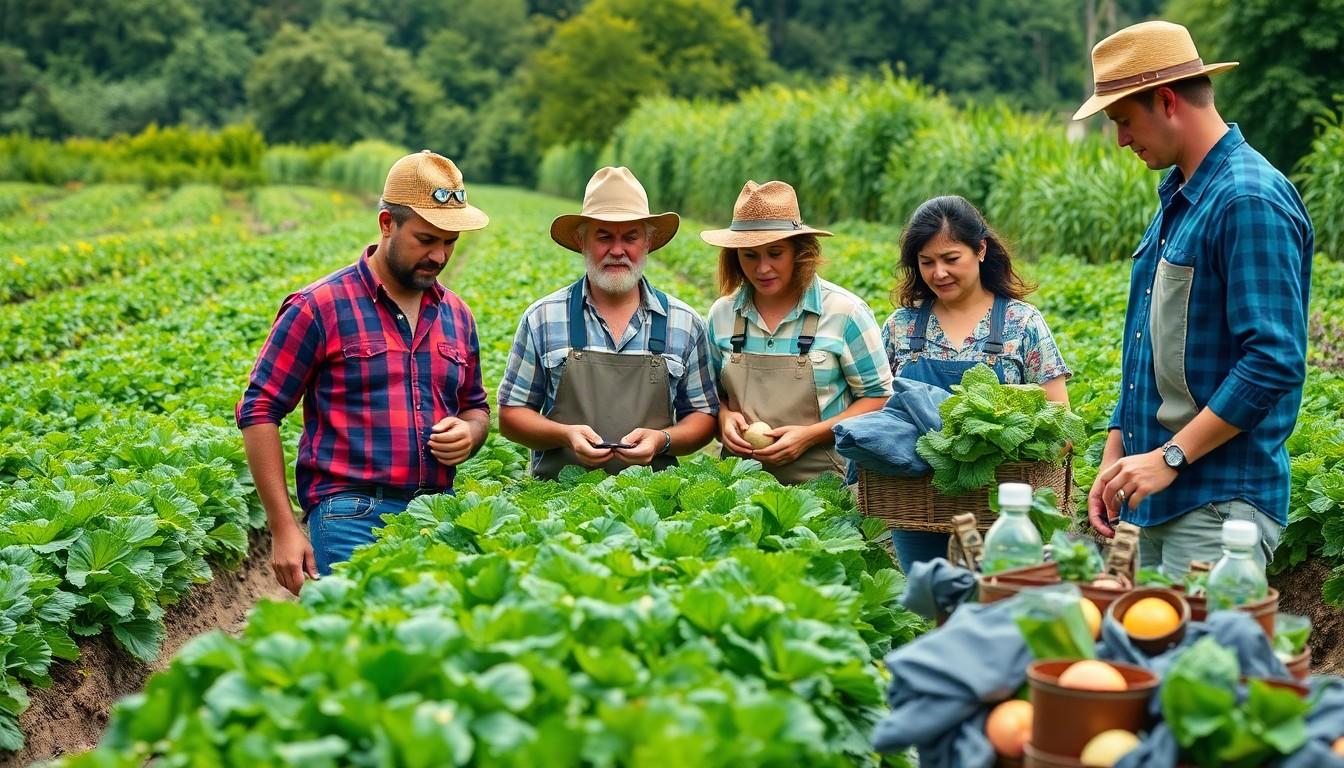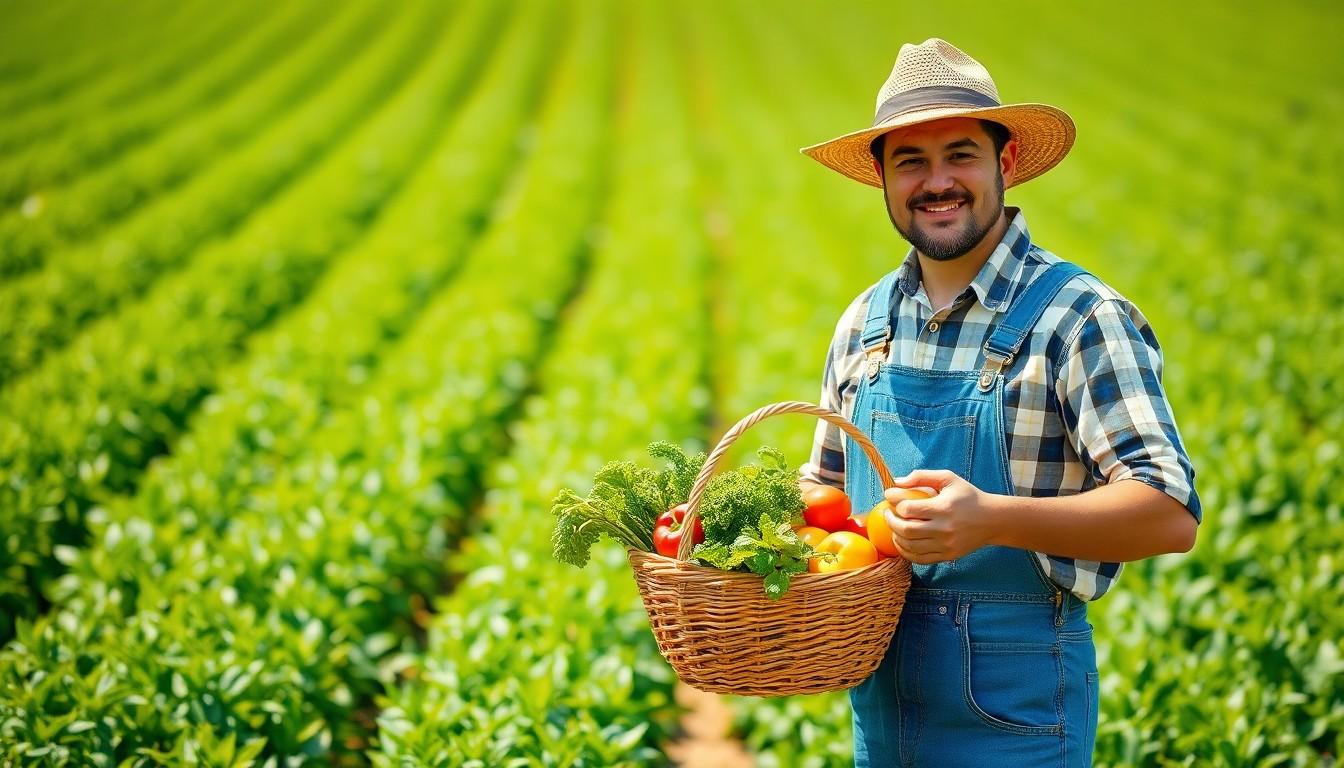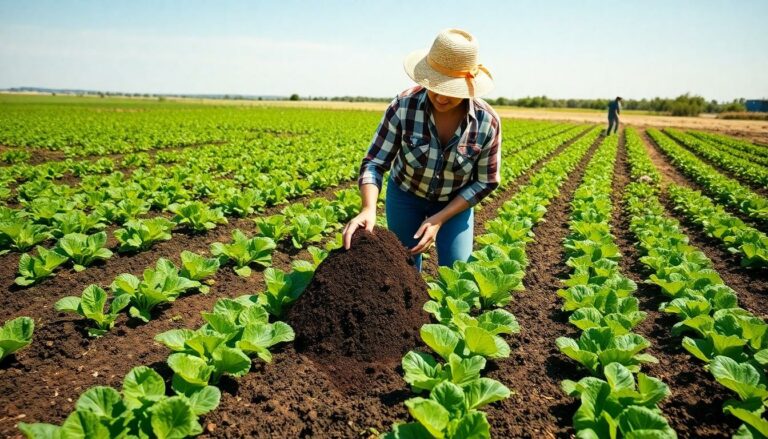In a world where kale is practically a celebrity and avocados have their own fan clubs, organic farming certification isn’t just a fancy title—it’s a ticket to the green party. This certification tells consumers that the produce they’re munching on is grown without synthetic pesticides or fertilizers. It’s like a badge of honor for farmers who want to show they’re doing their part for Mother Earth while keeping their crops as pure as a fresh morning dew.
Organic Farming Certification
Organic farming certification serves as a critical framework that validates agricultural practices. This certification ensures that farmers adhere to regulations governing organic produce, which includes using only approved substances. Achieving organic certification provides farmers with a competitive edge in the marketplace. Growers often undergo rigorous inspections and maintain detailed records to demonstrate compliance with standards set by certifying bodies.
Certification standards vary by country, but common principles include enhancing biodiversity and building soil fertility. Many consumers actively seek certified organic products due to their perceived health benefits. Research shows that organic farming reduces environmental impact, leading to sustainable ecosystems.
Farmers gain access to premium markets once they obtain organic certification. The USDA offers a nationally recognized organic certification in the United States. Obtaining such certification involves specific requirements, including three years of transition for non-organic land.
Identifying certified organic products becomes easier for consumers through recognizable labels. This labeling not only assures product authenticity but also fosters trust in the supply chain. Some regions may also include local organic certifications, adding another layer of assurance for buyers.
Organic farming promotes practices that preserve the environment and public health. By minimizing reliance on synthetic chemicals, farmers contribute to a healthier ecosystem. Thus, certification reinforces the commitment to sustainable agriculture while meeting consumer demand for ethically produced food.
Importance of Organic Farming Certification

Organic farming certification plays a crucial role in validating sustainable agricultural practices and establishing consumer trust.
Benefits for Farmers
Farmers gain numerous advantages from organic farming certification. Obtaining this certification opens access to premium markets that typically offer higher prices for organic products. Increased consumer demand for organic goods translates into better sales and profitability. Certification improves a farmer’s marketability, making their produce more appealing to health-conscious consumers. Detailed record-keeping and compliance with established standards also streamline operations. Rigorous inspections enhance their credibility, fostering confidence among buyers. Additionally, farmers often receive support from various organizations that promote organic agriculture, enhancing their knowledge about best practices.
Environmental Impact
Organic farming certification significantly reduces environmental impact. Farmers adopting organic standards actively promote biodiversity, creating healthier ecosystems for wildlife. Soil fertility improves through sustainable practices, which in turn enhances crop resilience. Reduced reliance on synthetic chemicals minimizes water pollution and promotes cleaner air quality. Enhanced soil structure leads to better water retention, reducing erosion and drought risks. By participating in this certification, farmers contribute to preserving natural resources and combating climate change effects. Moreover, organic agriculture methods support sustainable practices that protect and restore the environment for future generations.
Certification Process
The certification process for organic farming involves several essential steps to ensure compliance with regulations.
Steps to Obtain Certification
Initial assessment of current farming practices lays the groundwork for certification. Farmers must prepare and submit an application to a recognized certifying body. An inspection of the farm occurs thereafter, where auditors evaluate adherence to organic standards. If compliance is confirmed, the certifying body issues a certificate, allowing farmers to label their products as organic. Regular inspections follow annually to maintain certification status and guarantee continued compliance.
Requirements and Standards
Specific requirements govern organic farming certification. A three-year transition period is standard for converting non-organic land to organic. Farmers must document all inputs and practices meticulously, proving they align with organic practices. Additionally, biodiversity promotion and soil fertility enhancement remain key principles. Standards set by certifying bodies may vary by country, yet the commitment to avoiding synthetic pesticides and fertilizers remains consistent across all regulations.
Challenges in Organic Farming Certification
Organic farming certification poses various challenges for farmers. These challenges can hinder progress toward achieving certification and maintaining compliance.
Common Obstacles
Regulatory complexity often stands in the way of certification. Farmers must navigate differing standards set by certifying bodies, leading to confusion. Financial constraints also present a significant challenge, as the cost of certification can be prohibitive for small-scale producers. The three-year transition period required for converting non-organic land to organic limits immediate access to premium markets. Record-keeping demands add to the burden; farmers must meticulously document their practices to demonstrate compliance. Seasonal variability can impact crop yields, making it difficult for farmers to maintain consistent production during the certification process.
Addressing Misconceptions
Misconceptions about organic farming certification can create barriers. Many consumers mistakenly believe that all organic products are inherently better for the environment, ignoring the complexity of agricultural practices. Additionally, some farmers doubt the value of certification, seeing it as unnecessary when they already follow sustainable practices. Communications from certifying bodies may not adequately clarify the benefits, leaving farmers uninformed about potential market access and price premiums. Addressing these misconceptions requires targeted outreach and education, emphasizing the positive impacts of certification on both farming communities and the environment.
Future of Organic Farming Certification
The landscape of organic farming certification is evolving rapidly. Current developments indicate a shift towards more comprehensive approaches that not only validate farming practices but also enhance consumer awareness.
Trends in Certification
Consumers increasingly seek transparency, driving demand for organic certifications that go beyond traditional measures. Market reality shows a growing trend toward third-party verification, ensuring authenticity and building trust. Certification bodies adapt, creating new categories to address consumer interests such as regenerative agriculture. Data suggests that farmers focusing on sustainability principles gain more market access, enhancing their competitive advantage. This trend signifies a collective movement towards heightened accountability in the organic sector.
Innovations in the Industry
Technology shapes the future of organic farming certification through advanced monitoring systems. Blockchain applications offer a secure way to trace organic products from farm to table, reinforcing producer credibility. Data collection improves through mobile applications designed for record-keeping, simplifying compliance processes for farmers. New certification pathways emerge, providing flexibility in meeting evolving consumer demands. Innovations in farming practices, such as precision agriculture, enable farmers to optimize resources, ultimately enhancing sustainability. Robust advancements pave the way for organic practices to thrive amidst changing environmental conditions.
Sustainable Agricultural Practices
Organic farming certification stands as a crucial element in promoting sustainable agricultural practices. It not only empowers farmers to access premium markets but also assures consumers of the quality and authenticity of their food. As the demand for organic products continues to rise, the certification process evolves to meet new consumer expectations, emphasizing transparency and environmental stewardship.
Farmers embracing organic certification contribute significantly to biodiversity and healthier ecosystems while navigating the challenges of compliance. With advancements in technology and a growing focus on regenerative practices, the future of organic farming certification looks promising. This commitment to sustainability not only benefits the environment but also fosters a healthier food system for generations to come.




